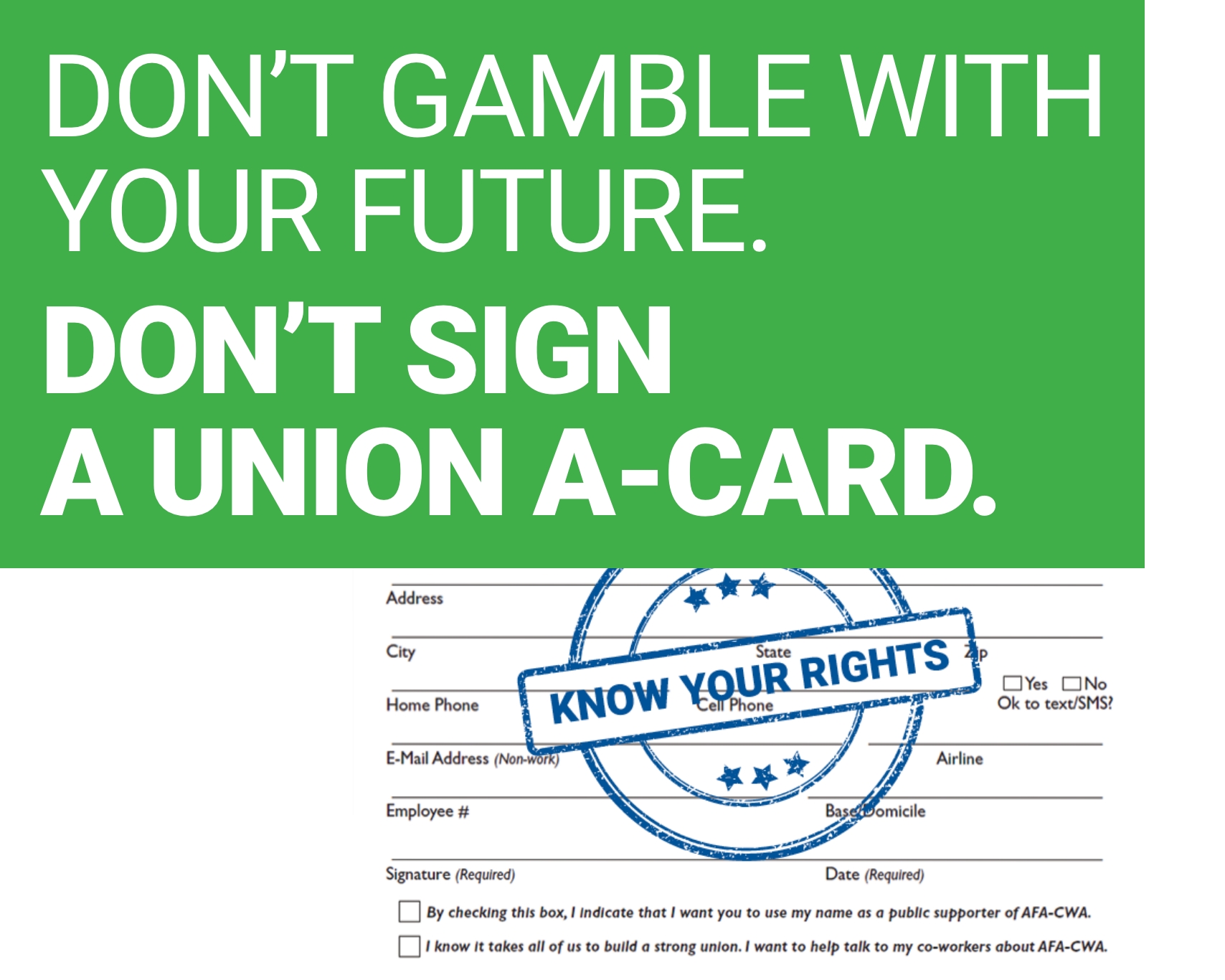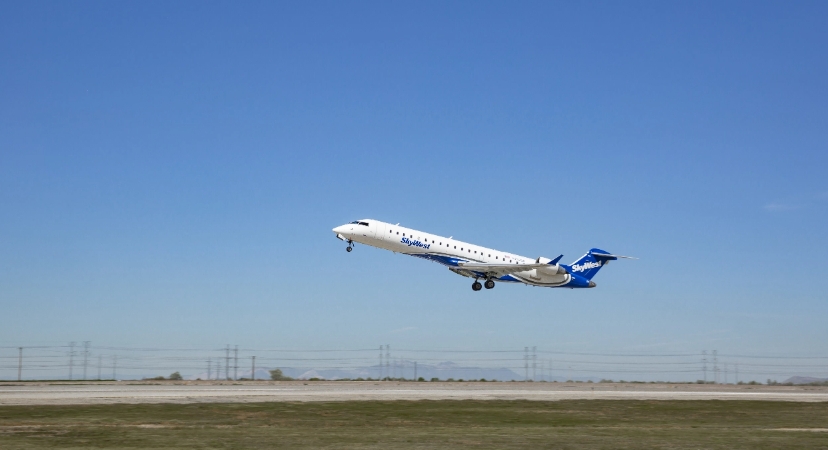

Union Facts
Unions thrive on creating an adversarial relationship with management and with colleagues or peers who disagree with them. Our industry is full of countless examples of how unions create hostile work environments, stalling progress and even pay increases for years.
History also has taught us that powerful unions, particularly in our industry, will not hesitate to place their companies in financial peril, ultimately costing thousands of hardworking men and women their jobs.
No one, not a union or SkyWest, could tell you what would be agreed to within a contract. In fact, a union can guarantee just one thing: the payment of union dues and assessments.
Voting in a union means all aspects of a pay and benefits package are up for negotiation. There is no guarantee that pay, work rules, or benefits will improve with a union contract.
Unions job protections only apply to non-probationary employees. In fact, union contracts typically have no sway over employee discipline or termination hearings until after you complete probation. And here's a nice bonus they don't want you to know: unions can require the company to terminate your employment if you fail to pay your dues.
While union organizers want you to believe they have your best interests at heart, they have no responsibility to listen to you or any of your peers. While they may act like your “friends,” they will represent your priorities and decisions in a way that best suits the national union.
Know Your Rights

You may have been told that signing a union authorization card (A-card) is risk-free.
Unfortunately, this is simply not true.
Unfortunately, this is simply not true.
When you sign a union A-card, you are providing your confidential information to a union with no restrictions on how it is used, sold, or transferred.
Signing a union A-card = authorizing a union vote. There are no returns.
Your signed union A-card will be used to schedule an election; it is not a request for information.
Your signed union A-card will remain valid for one year, and there is no obligation to give the card back. A union has zero obligation to discard a signed union A-card, even if you ask. Once signed, the union can use it to schedule an election against your wishes.
If a union is voted in and you realize it is less than what you hoped for and are paying for, it will be nearly impossible to restore our current, working relationship.
If you feel that you are being harassed, bullied, intimidated, or pressured into providing your information, report it immediately by calling 888.273.9994.
Bottom line: If you don't want a union, don't sign a union A-card.


Labor Representation
MYTHS and FACTS